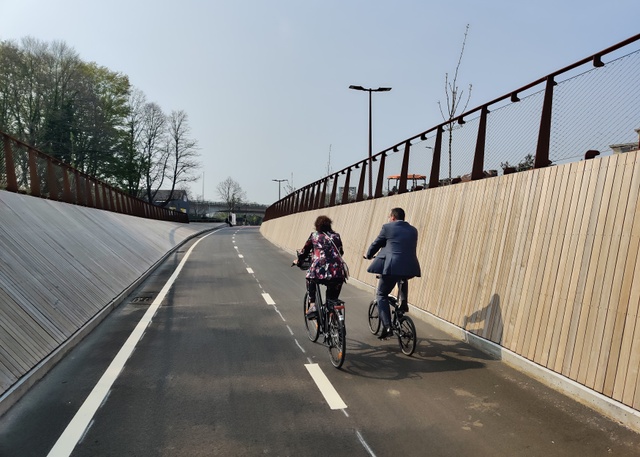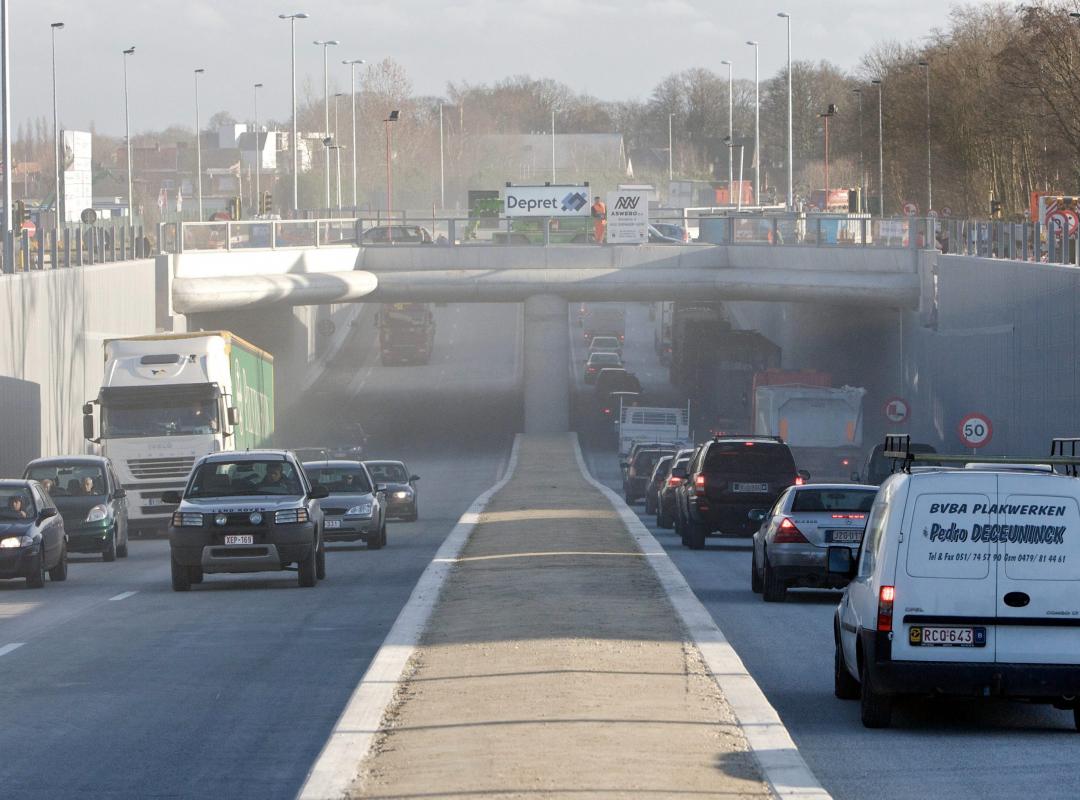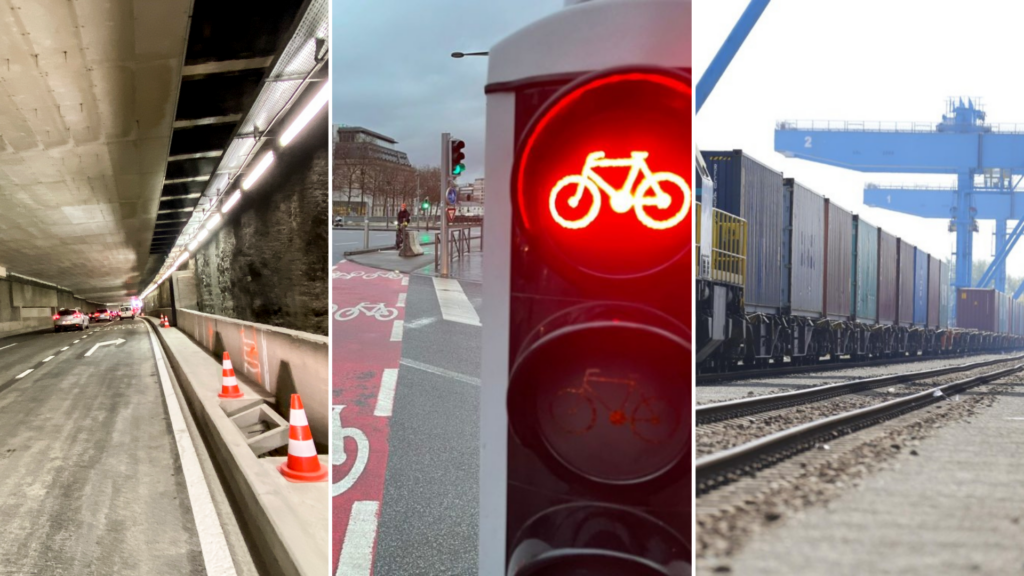Cycling, traffic safety and sustainability are at the heart of Flanders' Mobility and Public Works policy, for which a budget of €2.2 billion will be freed up in 2022 and spread over more than 900 projects.
The far-reaching policy comprises a total of 929 projects with €328 million earmarked for bicycle infrastructure — up from just €180 million in 2020. €225 million will be spent improving road safety, Flemish Minister of Mobility and Public Works Lydia Peeters announced on Thursday morning.
"We want to create a cycling reflex in every person in Flanders, so that every time we travel we instinctively go for the (shared) bike," Peeters said.
She added that to reach this goal, the region has to invest in safe, spacious and comfortable bicycle paths, which "requires a serious amount of investment." Peeters also wants to increase the cycling ambition of local authorities.

New cycle tunnel along the Woluwe valley in Zaventem and Kraainem. Credit: DWV Flanders
Aside from investment in infrastructure, the region will also boost traffic safety awareness campaigns. In addition, dangerous points on roads will be rethought, making intersections as conflict-free as possible and creating safe school routes and school environments.
Renovating old tunnels
The Mobility and Public Works policy manages 7,000 km of regional and motorways in Flanders, as well as 1,076 km of navigable waterways, 2,777 engineering structures (bridges, tunnels and retaining walls) and 7,700 km of cycle paths.
Although the region continues to invest in the maintenance and renovation of this infrastructure, there is currently a "maintenance backlog" when it comes to updating Flanders' bridges.

Flanders will heavily invest in tunnels that are in a poor condition. Credit: Belga
"In 2022, we will therefore invest €133 million in the maintenance and renovation of our engineering structures, €68 million of which will go to the list of priority engineering structures, such as bridges that are in the worst condition." Another €48 million will be invested in the maintenance and renovation of tunnels.
Sustainable transport
As is the case at the federal level, Flanders is encouraging businesses to rely more on shipping and railways to transport goods across the country, rather than via trucks.
One train could replace 50 HGVs on the road. Transporting freight by train would not only save a lot of money but would also cut carbon emissions and ease pressure on road infrastructure.
Related News
- Flemish people challenged to ditch their cars for June
- Popularity of cycling riding high as Brussels Mobility launches new campaign
- VAT on bicycles will not be reduced
To help promote this shift, the region will invest €15 million in rail hubs and will improve waterways through large infrastructure projects such as the accelerated raising of bridges.
Finally, Peeters announced a €55 million investment in electric buses to make public transport operator De Lijn more sustainable.
"The greening of public transport in Flanders is an important measure in our ambition for healthier air and to actually tackle the climate challenges," said Peeters.

